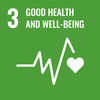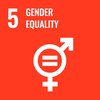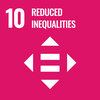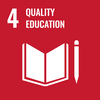The Most Important in Brief
Created in 2010, IMPACT is a Geneva-based NGO and the largest independent data provider in contexts of crisis. We aim to support a range of stakeholders in making better, more informed decisions in humanitarian, stabilisation, and development settings. We believe that a key pathway to better planning and decision-making is direct engagement with local communities and their leaders. Through our team of assessment, data, geospatial, and thematic specialists, we promote the design of people-centred research and set standards for collecting and analysing rigorous, high quality data in complex environments. IMPACT also aims to foster partnerships and build capacities with key stakeholders. IMPACT takes an initiative-based approach to structuring our programming. Each initiative has a specific aim, operational model, and portfolio of solutions. REACH strengthens evidence-based humanitarian decision-making through efficient data collection, management, and analysis – before, during, and after an emergency. AGORA promotes localised and multi-sectoral aid action in support of the recovery and stabilisation of crisis-affected communities, in partnership with local stakeholders. PANDA improves the impact of humanitarian and development interventions through programme design, assessments, and monitoring & evaluation.
-
Purpose
Founded in 2010, IMPACT is a Geneva-based NGO and the largest independent data provider operating in crisis contexts. Our mission is to support a wide range of stakeholders in making better, more informed decisions within humanitarian, stabilization, and development settings. We believe that fostering direct engagement with local communities and their leaders is a critical pathway to achieving improved planning and decision-making. Through our team of assessment, data, geospatial, and thematic specialists, we prioritize people-centered research design and set rigorous standards for collecting and analyzing high-quality data in complex environments. IMPACT is also committed to building partnerships and strengthening the capacities of key stakeholders. Our programming follows an initiative-based approach, with each initiative tailored to a specific aim, operational model, and portfolio of solutions: - REACH enhances evidence-based humanitarian decision-making through efficient data collection, management, and analysis—before, during, and after emergencies. - AGORA supports localized and multi-sectoral aid efforts to promote recovery and stabilization in crisis-affected communities, in collaboration with local stakeholders. - PANDA improves the impact of humanitarian and development interventions through program design, assessments, and monitoring and evaluation. By leveraging these initiatives, IMPACT strives to drive meaningful change and deliver sustainable outcomes in the most challenging contexts.
-
The Most Important in Brief
Created in 2010, IMPACT is a Geneva-based NGO and the largest independent data provider in contexts of crisis. We aim to support a range of stakeholders in making better, more informed decisions in humanitarian, stabilisation, and development settings. We believe that a key pathway to better planning and decision-making is direct engagement with local communities and their leaders. Through our team of assessment, data, geospatial, and thematic specialists, we promote the design of people-centred research and set standards for collecting and analysing rigorous, high quality data in complex environments. IMPACT also aims to foster partnerships and build capacities with key stakeholders. IMPACT takes an initiative-based approach to structuring our programming. Each initiative has a specific aim, operational model, and portfolio of solutions. REACH strengthens evidence-based humanitarian decision-making through efficient data collection, management, and analysis – before, during, and after an emergency. AGORA promotes localised and multi-sectoral aid action in support of the recovery and stabilisation of crisis-affected communities, in partnership with local stakeholders. PANDA improves the impact of humanitarian and development interventions through programme design, assessments, and monitoring & evaluation.
-
Goals
Support Informed Decision-Making : Enable stakeholders in humanitarian, stabilization, and development settings to make better, more informed decisions through rigorous data and analysis. Promote People-Centered Research : Design research initiatives that prioritize the needs and perspectives of local communities and their leaders. Enhance Data Standards : Set and uphold high standards for collecting, analyzing, and utilizing rigorous, high-quality data in complex and crisis-affected environments. Foster Partnerships : Build strong collaborations with key stakeholders, including local communities, governments, NGOs, and international organizations. Strengthen Local Capacities : Empower local stakeholders by building their capacities to engage in data-driven decision-making and program implementation. Drive Evidence-Based Humanitarian Action (REACH) : Strengthen humanitarian decision-making through efficient data collection, management, and analysis at all stages of emergencies. Promote Localized Aid and Recovery (AGORA) : Support multi-sectoral aid efforts to foster recovery and stabilization in crisis-affected communities, in partnership with local actors. Improve Program Impact (PANDA) : Enhance the effectiveness of humanitarian and development interventions through robust program design, assessments, and monitoring and evaluation. Encourage Initiative-Based Programming : Structure programming around specific initiatives, each with tailored aims, operational models, and solution portfolios to address unique challenges. Facilitate Direct Community Engagement : Promote direct engagement with local communities and their leaders as a cornerstone of better planning and decision-making.
-
Principles
Orientation : IMPACT is oriented toward improving decision-making in humanitarian, stabilization, and development contexts through rigorous data collection, analysis, and research. As a Geneva-based NGO and the largest independent data provider in crisis settings, IMPACT focuses on addressing critical information gaps to support evidence-based policies and interventions. Its work is driven by a commitment to fostering sustainable solutions that prioritize the needs of crisis-affected populations. Values : IMPACT’s core values center around collaboration, accountability, innovation, and inclusivity . The organization emphasizes partnerships with local communities, governments, NGOs, and international agencies to ensure a collective approach to problem-solving. It upholds transparency and ethical standards in data management and program implementation, ensuring accountability to stakeholders. IMPACT also values innovation, leveraging advanced technologies and methodologies to enhance the quality and efficiency of its work. Inclusivity is key, as IMPACT prioritizes engaging marginalized voices and empowering local actors in all its initiatives. Basic Approach : IMPACT adopts a people-centered, initiative-based approach to programming. Each initiative—such as REACH, AGORA, and PANDA—is tailored to specific goals, operational models, and solution portfolios. IMPACT uses robust data collection and analysis methods, including geospatial tools and participatory assessments, to produce actionable insights. By fostering direct engagement with local communities and building capacities of stakeholders, IMPACT ensures its solutions are context-specific, sustainable, and scalable. This collaborative and adaptive approach enables IMPACT to address complex challenges effectively while promoting long-term resilience and recovery.
-
Measures
To achieve IMPACT's goals, the organization employs a variety of measures and strategies that align with its mission to provide rigorous data, foster partnerships, and support informed decision-making. Below is a list of key measures: 1. Data Collection and Management - Conduct systematic and efficient data collection in crisis and development contexts. - Use advanced tools and methodologies for data management, ensuring accuracy, reliability, and accessibility. - Implement standardized protocols for data collection to ensure consistency and comparability across projects. 2. Research Design and Analysis - Develop people-centered research frameworks that prioritize the needs of local communities. - Employ geospatial analysis, thematic assessments, and statistical modeling to analyze complex environments. - Ensure all research adheres to high standards of rigor and quality, setting benchmarks for evidence-based practices. 3. Capacity Building - Train local stakeholders, including community leaders and partner organizations, in data collection, analysis, and program implementation. - Provide workshops, tools, and resources to empower local actors to engage in sustainable decision-making processes. - Strengthen institutional capacities of governments and NGOs through collaborative initiatives. 4. Partnerships and Collaboration - Build strong networks with local, national, and international stakeholders, including NGOs, governments, and UN agencies. - Partner with local communities to ensure their voices are integrated into planning and decision-making processes. - Collaborate with specialized organizations (e.g., REACH, AGORA, PANDA) to deliver tailored solutions for specific challenges. 5. Technology and Innovation - Leverage cutting-edge technologies, such as GIS mapping, satellite imagery, and mobile data collection tools, to enhance efficiency and accuracy. - Explore and adopt innovative solutions for data visualization, reporting, and dissemination to make insights more accessible. - Invest in digital platforms to streamline communication and collaboration among stakeholders. 6. Monitoring and Evaluation (M&E) - Implement robust monitoring and evaluation frameworks to assess the impact of programs and interventions. - Use real-time data to adapt and improve ongoing projects, ensuring they remain relevant and effective. - Conduct post-project evaluations to measure long-term outcomes and inform future initiatives. 7. Localization of Aid Efforts - Prioritize localized approaches by involving local communities and leaders in all stages of program design and implementation. - Support multi-sectoral aid efforts that address the unique needs of crisis-affected populations. - Work closely with local stakeholders to ensure sustainability and ownership of initiatives. 8. Evidence-Based Advocacy - Use data and research findings to advocate for policy changes and improved humanitarian responses. - Share insights and reports with decision-makers to influence evidence-based policies and actions. - Promote transparency and accountability by making data publicly available where appropriate. 9. Initiative-Based Programming - Structure programming around specific initiatives (e.g., REACH, AGORA, PANDA), each with clear objectives and tailored solutions. - Adapt operational models to fit the unique challenges and contexts of different regions or crises. - Ensure flexibility and scalability of initiatives to respond effectively to evolving needs. 10. Community Engagement and Participation - Facilitate direct engagement with local communities to ensure their perspectives and priorities are incorporated into decision-making. - Use participatory methods, such as focus groups and surveys, to gather community input and feedback. - Empower local leaders to take an active role in shaping and implementing solutions. 11. Financial Sustainability - Secure funding through diverse channels, including grants, donations, and partnerships, to ensure long-term program viability. - Utilize online platforms and digital tools to facilitate transparent and efficient donation processes. - Optimize resource allocation to maximize the impact of available funds. 12. Knowledge Sharing and Dissemination - Publish reports, case studies, and best practices to share insights with the broader humanitarian and development community. - Host webinars, conferences, and workshops to disseminate findings and foster dialogue among stakeholders. - Maintain open-access databases and platforms to make data and research widely available. These measures collectively enable IMPACT to achieve its goals by ensuring that its work is data-driven, community-focused, and adaptable to the dynamic challenges faced in crisis and development contexts.
-
Financing
IMPACT’s financial model is deeply rooted in its commitment to collaboration and partnership, enabling the organization to operate sustainably while delivering high-quality, data-driven solutions in crisis and development contexts. Below is an explanation of how IMPACT finances its operations and sustains its programs: 1. Funding Through Partnerships - Collaborative Financing Models: IMPACT operates primarily through partnerships with international aid actors, national and local stakeholders, governments, UN agencies, NGOs, and other organizations. These partnerships often include funding agreements tailored to specific projects or initiatives. - Project-Based Grants: IMPACT receives funding for its programs from a wide range of donors, including institutional donors (e.g., UN agencies, EU bodies), private foundations, and bilateral organizations. These grants are typically tied to specific objectives, such as humanitarian assessments, stabilization efforts, or development-focused research. - Inter-Agency Coordination: As an active member of global humanitarian systems, IMPACT participates in inter-agency coordination mechanisms like the Inter-Agency Standing Committee (IASC). This involvement not only strengthens its network but also provides access to pooled funding mechanisms that support collaborative initiatives. 2. Diversified Funding Sources - Institutional Donors: IMPACT secures significant funding from large institutional donors, such as the European Commission (ECHO), USAID, and the World Bank. These funds are often earmarked for specific regions or crises. - Private Sector and Foundations: IMPACT collaborates with private sector entities and philanthropic foundations that share its vision of evidence-based decision-making. This includes both monetary contributions and in-kind support. - Academic and Research Institutions: By partnering with universities and specialized research agencies, IMPACT leverages co-funding opportunities for joint research initiatives. These partnerships also enhance the credibility and rigor of its work.
Area of Impact
Founded in 2010, IMPACT is a Geneva-based NGO and the largest independent data provider operating in crisis contexts. Our mission is to support a wide range of stakeholders in making better, more informed decisions within humanitarian, stabilization, and development settings. We believe that fostering direct engagement with local communities and their leaders is a critical pathway to achieving improved planning and decision-making. Through our team of assessment, data, geospatial, and thematic specialists, we prioritize people-centered research design and set rigorous standards for collecting and analyzing high-quality data in complex environments. IMPACT is also committed to building partnerships and strengthening the capacities of key stakeholders. Our programming follows an initiative-based approach, with each initiative tailored to a specific aim, operational model, and portfolio of solutions: - REACH enhances evidence-based humanitarian decision-making through efficient data collection, management, and analysis—before, during, and after emergencies. - AGORA supports localized and multi-sectoral aid efforts to promote recovery and stabilization in crisis-affected communities, in collaboration with local stakeholders. - PANDA improves the impact of humanitarian and development interventions through program design, assessments, and monitoring and evaluation. By leveraging these initiatives, IMPACT strives to drive meaningful change and deliver sustainable outcomes in the most challenging contexts.
Created in 2010, IMPACT is a Geneva-based NGO and the largest independent data provider in contexts of crisis. We aim to support a range of stakeholders in making better, more informed decisions in humanitarian, stabilisation, and development settings. We believe that a key pathway to better planning and decision-making is direct engagement with local communities and their leaders. Through our team of assessment, data, geospatial, and thematic specialists, we promote the design of people-centred research and set standards for collecting and analysing rigorous, high quality data in complex environments. IMPACT also aims to foster partnerships and build capacities with key stakeholders. IMPACT takes an initiative-based approach to structuring our programming. Each initiative has a specific aim, operational model, and portfolio of solutions. REACH strengthens evidence-based humanitarian decision-making through efficient data collection, management, and analysis – before, during, and after an emergency. AGORA promotes localised and multi-sectoral aid action in support of the recovery and stabilisation of crisis-affected communities, in partnership with local stakeholders. PANDA improves the impact of humanitarian and development interventions through programme design, assessments, and monitoring & evaluation.
- +41 61 278 93 83
- office@stiftungschweiz.ch
- https://stiftungschweiz.ch/
- Basel, Basel-Stadt
- Facebook Profile
- Instagram Profile
- Youtube Profile
- January 1, 2010
-
Valérie PETITPIERRE Added
-
Luca PUPULIN Added
Last updated on April 2, 2025




